9th Symposium Agenda
Dates: September 25-26, 2025
Location: Ottawa, Ontario
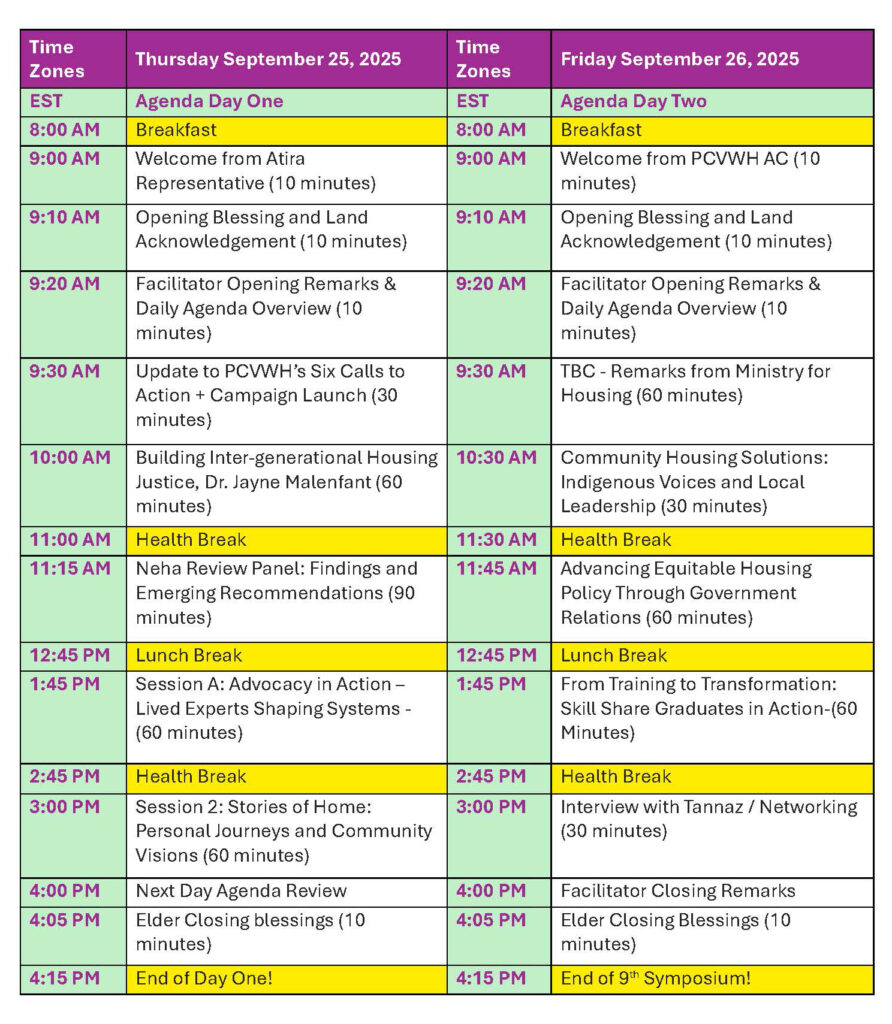
Symposium Guests and Speakers

Facilitator: Andrea Reimer
Andrea Reimer is a longtime advocate for social, economic, and environmental justice, whose public work began in grassroots community organizing. Andrea made history in 2002 as the first Green Party member elected in Canada, serving on the Vancouver School Board, and was later elected three times to Vancouver City Council with Vision Vancouver. During her tenure, she led transformative policy initiatives, from climate action and reconciliation with Indigenous peoples to digital strategy and open government, and represented Vancouver locally, nationally, and globally, including at the United Nations.
After retiring from municipal politics, Andrea was awarded a Loeb Fellowship at Harvard and became UBC’s first policy practitioner fellow. Andrea now leads Tawâw Strategies, teaches power literacy at UBC & SFU, and serves on multiple boards. Andrea also hosts the She They Us podcast, which has released two seasons exploring gender, power, and justice as they relate to housing through thoughtful conversations.

Pamela Spurvey, Indigenous Wellness Coordinator, Community Advocate
Pamela Spurvey is an Indigenous Cree woman from the Beaver Lake Cree Nation in Alberta. She works as an Indigenous Wellness Coordinator at Henwood Treatment Center and serves as a Recovery Life Skills Coach/Mentor for the Drug Treatment Courts across Alberta. With over 17 years of personal recovery, Pamela’s experiences with mental health and substance use struggles, homelessness, the criminal system and the foster care system deeply informs her ability to relate to others facing similar struggles. In time, with self-help groups and guidance from community supports and Indigenous culture she was able to gain a sense of hope and find her way out of darkness back to her children, her community and herself.
Pamela is actively involved in various committees where she uses her lived and ongoing experiences to advocate for systemic change and amplify people’s voices to drive meaningful transformation. Her work focuses on fostering culturally inclusive care and she uses her voice to help others find their way back to their spirit and find their voice in a disadvantaged system. She believes with the right supports in place we can prevent and reduce homelessness amongst women and gender-diverse people.

Marie McGregor Pitawanakwat
Marie McGregor Pitawanakwat is an Anishinaabe kwe, at Daawganing, on Manitoulin Island, Northeastern Ontario, Canada. Marie developed Szhibeegen Training Services, providing training and development to First Nation communities and NGOs, in Northwestern Ontario, focussed on community and business development. Her business won an award from the Northern Ontario Business Awards.
In 2015, shortly after returning to her home community at Whitefish River First Nation, she was evicted from the original family home and became homeless. Her belief was and is that Indigenous people already own the land, so there was and is no need to “purchase” land that one’s people already own. She created a tiny home, situated in the woods on the Whitefish River reserve on unused land, where she lived off-grid for three years.
In 2018, the Whitefish River reserve evicted her and she became homeless again. In 2019, Marie was accepted as a member of Wiikwemkoong Unceded Territory.

Stefania Seccia
Stefania Seccia is the Executive Director of Advocacy & Public Affairs at the Women’s National Housing and Homelessness Network. Stefania is a settler living on the unceded territories of the Coast Salish peoples, the xʷməθkʷəy̓əm (Musqueam), Sḵwx̱wú7mesh (Squamish), and Sel̓íl̓witulh (Tsleil-Waututh), whose presence on and stewardship of these lands continues to this day.
Stefania Seccia is a long-time housing justice advocate and former journalist, Stefania has led national campaigns, mentored emerging leaders, and helped launch key initiatives like the Vote Housing campaign and the On the Way Home podcast. She lives on the unceded territories of the Coast Salish peoples and brings a deep commitment to advancing gendered housing rights. Stefania believes in the power of collective action to end homelessness and build a just, inclusive society where everyone has a place to call home.

Jayne Malenfant
Jayne Malenfant is from Kapuskasing, Ontario, but has been in Tio’tiá:ke/Montreal since 2016.
They are an Assistant Professor in Social Justice and Community Engaged Education, in the Department of Integrated Studies in Education at McGill University. They have worked in homelessness research for over a decade, with a focus on activist and community-based research with youth in Quebec. Their current research focuses on the educational experiences of young people and adults navigating homelessness, research leadership by people with lived and living experience of housing precarity, and the experiences of Two-Spirit, trans, and non-binary communities navigating housing precarity.

Sylvia Maracle, Neha Review Panel Member
Sylvia Maracle (Skonaganleh:ra) is a 2Spirited Mohawk, Wolf Clan member from Tyendinaga Mohawk Territories. Sylvia has worked with Indigenous Friendship Centres since 1975. She has been the Executive Director of the Ontario Federation of Indigenous Friendship Centres for 41 years.
Sylvia Maracle is a visionary Indigenous leader and public speaker whose work is deeply grounded in traditional knowledge and practices. She currently chairs the Original People’s Learning Centre and Ontario Aboriginal Housing Services, and has held leadership roles in numerous Toronto Indigenous organizations. Sylvia has been instrumental in shaping both provincial and federal Indigenous strategies, and has represented Indigenous women and children at international forums. She is a founding Co-Chair of Two Spirits in Motion, advocating for 2SLGBTQ+ Indigenous communities. Her contributions have earned her numerous honors, including the Governor General’s Award in Commemoration of the Persons Case, Doctor of Laws degrees from four universities, the Indspire Award for Public Service, the Queen’s Jubilee Medal, and the title of Officer of the Order of Canada.

Pamela Glode Desrochers, Neha Review Panel Member
Pamela Glode Desrochers has worked with the Mi’kmaw Native Friendship Centre for over 28 years and has been Executive Director for over 12 years.
Pamela’s mandate at the Friendship Centre is to provide quality programs to urban Indigenous people. These programs focus on reducing poverty and crime, health, housing, homelessness, justice and promote personal and community health and well-being. She has a central role in developing a new Friendship Centre that will provide opportunities for the urban Indigenous community to become self-sustainable.
Under her leadership, the number of programs and services offered at the Friendship Centre has increased from 8 to 40. Programs include housing and homelessness, employment and training, early childhood education, several literacy programs and a youth program. Pamela currently sits on the Board of Directors of the National Association of Friendship Centers. She received the Governor General’s award: Sovereign’s Medal for Volunteers in Ottawa for Outstanding Indigenous Leadership.

Marie Pascaline Menono, Neha Review Panel Member
Marie Pascaline Menono is a social worker specializing in intersectional Gender-based Analysis Plus (GBA+) and human rights. She is a feminist activist who advocates for women’s rights and promotes the right to housing for all.
Marie Pascaline has been a gender adviser at the United Nations and for various international organizations. She has a proven track record of supporting the integration of a gender perspective into policies and programs. She is also a strong advocate for the elimination of violence against women and girls, and promoting positive masculinity.
Marie Pascaline brings her extensive knowledge of human rights-based approaches and GBA+, as well as her involvement in the right to housing approach to the National Housing Council. Her activism and professional experience make her well positioned to develop and implement housing policies and programs that address the needs of disadvantaged groups.

Fadhilah Balogun, PCVWH Skill Share Graduate
Dr. Fadhilah Balogun is the Executive Director of the African Women’s Alliance of Waterloo and an active board volunteer with several organizations in the Waterloo Region, including the Community Coalition on Refugee and Immigrant Concerns, Highland Stirling Neighbourhood Association, and Beyond Housing. Proudly identifying as a community volunteer, she brings over 20 years of grassroots experience as an internationally trained medical doctor.
Her advocacy is rooted in addressing housing insecurity and inadequate infrastructure, issues she witnessed growing up in Nigeria. Dr. Fadhilah works closely with women affected by gender-based violence, recognizing secure housing as a critical factor in their ability to escape harm. Her commitment is driven by a desire to amplify marginalized voices and promote equitable, community-led solutions.

Rouand Hassouna, PCVWH Skill Share Graduate
Rawand Hassouna is a newcomer to Canada with over 10 years of experience in the humanitarian and development sector, focusing on women’s empowerment, youth employment, and entrepreneurship development. She has led trainings, projects, and advocacy initiatives that create opportunities for marginalized communities.
Through her participation in the PCVWH Skills Share Training program, Rawand has strengthened her advocacy and community engagement skills and is passionate about promoting women’s rights and creating inclusive opportunities to support community growth.

Lisa Martin, Community Advocate, PCVWH Skill Share Graduate
Lisa Martin (she/her) is a feminist housing activist based in Tkaronto with a lived experience of gender-based violence. She conceptualizes her work as being at the intersection of social engaged art, research and activism.
Lisa is interested in systems thinking, arts-based knowledge mobilization, dissemination and power literacy. http://bio.site/lisamartin, http://bio.site/growyourknow

Meghan South, PCVWH Skill Share Graduate
Meghan is a passionate speaker, activist, and peer support worker whose work connects grassroots advocacy with global frameworks like the Sustainable Development Goals. Beginning as a youth advocate, she has become a trusted voice for women’s rights and community empowerment, known for inspiring dialogue and action.
Drawing on lived experience, Meghan supports women facing housing precarity with compassion and practical care, ensuring their stories inform systemic change. Through her intersectional approach, combining peer support, facilitation, and activism. Meghan creates inclusive spaces that transform personal resilience into collective advocacy, championing sustainable solutions rooted in dignity, equity, and justice.

Cindy Chiasson
Cindy Chiasson has lived in the Yukon for over 55 years and brings deep Northern knowledge and lived experience to her role as moderator of the Lived Expert Panel.
A member of the PCVWH Advisory Circle for seven symposiums, she has worked with the Yukon Women’s Transition Home Society for 25 years, including 18 years focused on housing. Her advocacy challenges policymakers to rethink affordability through the lens of those most impacted by housing insecurity in the North.
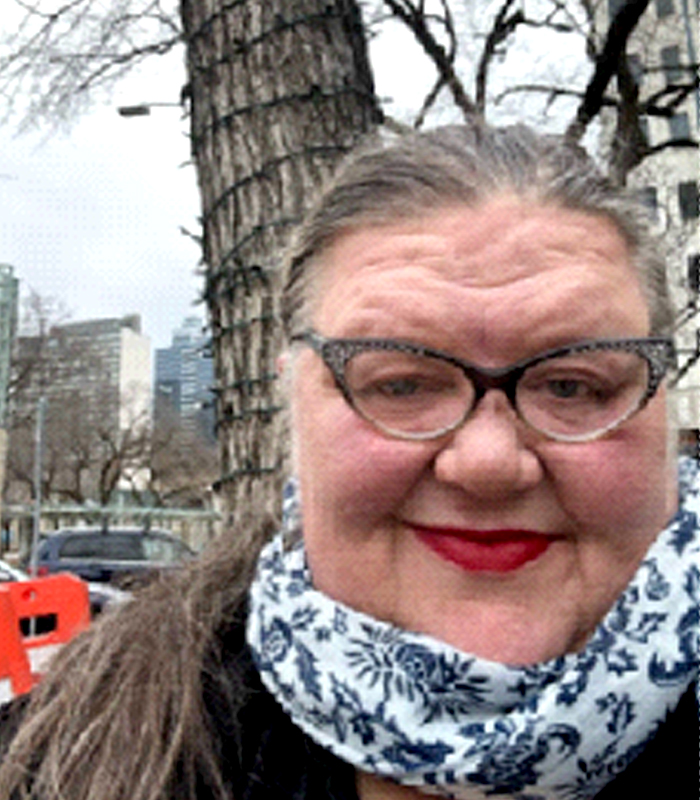
Heather Fairbairn
Heather Hanninen Fairbairn is a disabled, non binary person working at the intersections of poverty, disability, housing, and women’s and gender diverse people’s issues. Her pronouns are she/they. Heather was born in and after much travel, working and studying abroad, returned to Edmonton on Treaty 6 Territory. She holds a Master’s degree in Urban Planning from Dalhousie, with her thesis focused on housing for women in crisis. She was precariously housed, her 75 year old townhouse slated for demolition, until a fire forced her out.
She remains precariously housed in a high rise where the rent is more than 50% of her income. Heather is grateful to be a part of PCVWH’s Advisory Council, and to have worked along with these amazing women and gender diverse humans. She was privileged to be a part of the PCVWH’s She*They*Us: Making Room in Housing podcast. In her spare time, she admins several Facebook groups, reads, corresponds with friends around the world in handwritten letters, creates slow stitched and mixed media art, listens to music, and gives hearty belly rubs to her two much adored cats, Stormy and Blue.

Everlyn Mukuhi, Company-PHS Vancouver
Eve is an international health practitioner with over eight years of experience supporting individuals and families through health transitions, both in clinical and community settings. Now based in Vancouver, BC, she brings a trauma-informed, compassionate approach to her work in supportive housing, reproductive health, and tenant support roles. Eve is passionate about equity in care, mental health, and creating safe, dignified spaces for vulnerable populations.
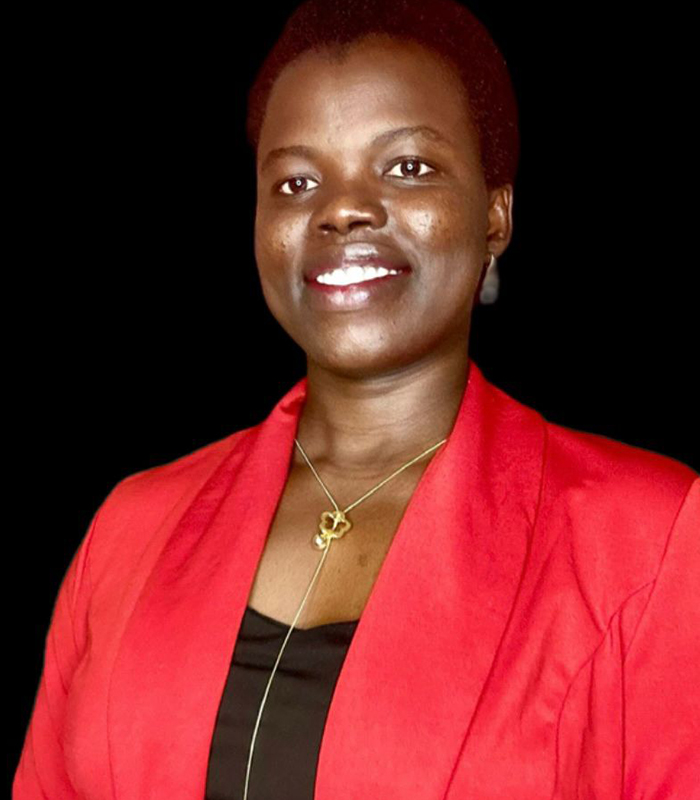
Rhoda Philip, MPP, Regional Lead Research Officer, University of Toronto
Rhoda is a public policy alumna from the University of Toronto, where she currently works as the Regional Lead Research Officer (Africa Relations). As an award-winning community advocate, Rhoda has been leveraging her lived expertise, research, and policy education to contribute to discussions on housing justice. She sits on various advisory boards, including the Pan-Canadian Voice for Women’s Housing (PCVWH). Her 20 years of experience with forced displacement and transient living has deeply shaped her understanding of the importance of stable, affordable housing. Having spent her entire childhood moving from place to place, never quite feeling settled, she has seen firsthand how destabilizing and dehumanizing it can be to not have a home. These challenges have fueled her unwavering commitment to advocating for affordable housing for all Canadians, especially women and gender-diverse families. Everyone deserves a safe and permanent place to call home, and Rhoda believes it’s time we ensure that housing is a right, not a privilege. Stability is the foundation for opportunity, and no one should have to live in uncertainty.

Veronica Snooks
Veronica is a member of the DET OHT Community Advisory Council (CAC) and the Mental Health and Addictions (MHA) Working Group. Veronica lends her expert knowledge and perspectives to the CAC and MHA Working Group as a person with lived experience and a member of the First Nation with the goal of enhancing the delivery of care for patients and clients in the Downtown East area. Veronica’s vision goes beyond just housing but striving to create not only safe homes but also strong communities.

Yetunde Amanda
My name is Yetunde Amanda Ona, and I’m originally from Nigeria, located in west Africa. I hold a bachelor’s degree in public administration and political science, and I currently work as a support worker (PSW/DSW)
I arrived in Canada in January 2018 as both a newcomer and a refugee claimant. During my first few months, I lived in various shelters with my children. While I was grateful for the temporary spaces provided—small corners and hotel rooms—there was often a sense of generalization and lack of personalized support that didn’t sit well with me. I quickly realized the importance of advocating for myself and for what my family needed to truly settle and survive.
This experience sparked my passion for advocacy and led me to become an active member of the EST (Expert Steering Team), where I continue to support and uplift others going through similar journeys.
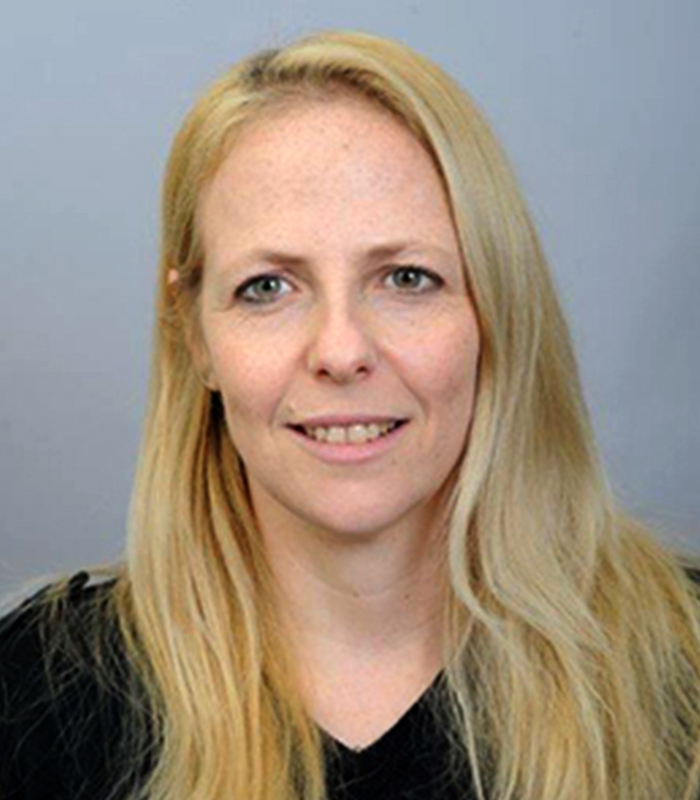
Annick Mondat Allemann
Annick is the Director of Community and Social Development at the Southeast Regional Service Commission in Southeast New Brunswick, where she leads initiatives to strengthen regional resilience and build healthy, connected communities. With a multidisciplinary background in communication, criminology, psychology, and public service, and experience across research, telecommunications, and non-profits, she brings a broad perspective to her work.
Annick is a strong advocate for health and housing equity, especially for marginalized groups facing homelessness, and promotes inclusive, community-driven solutions. She serves on the Advisory Circle of the Pan-Canadian Voice for Women’s Housing and the board of Crossroads for Women.
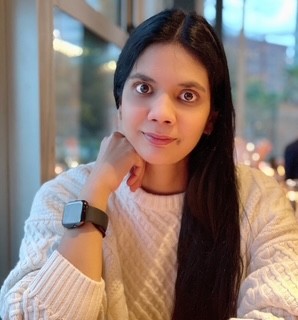
Samreen Hector
Director of Health Programs leads initiatives in harm reduction, overdose prevention, and improving health services for vulnerable tenants.
She has a background in pharmacy and pharmacology with over ten years of healthcare experience.

Kaite Burkholder Harris
Kaite Burkholder Harris is the executive director of the Alliance to End Homelessness Ottawa. Graduating with a Master of Public Health from the University of Toronto, Kaite worked at a systems level on ending youth homelessness with A Way Home Ottawa. She went on to work at the Canadian Observatory on Homelessness with communities across the country as a system planner in housing and homelessness. Kaite also served as a policy analyst with Reaching Home, the federal government’s Homelessness Partnering Strategy in 2019.
As co-chair of the Ontario Alliance to End Homelessness, Kaite advocates with every level of government and has become a leading voice in urging governments and communities for housing-focused solutions to ending homelessness.